Election Blues…
I have little or no enthusiasm for this election campaign. Nor do I think the outcome, either way, will dramatically change anything. The election of 2008 was supposed to change EVERYTHING. It didn’t. Whether you want to blame it all on Republican obstructionism, or whether Mr. Obama proved to be less of a “transformational” leader than he (and we) hoped is irrelevant now. The fact is, nothing really happened in the last four years The country is split almost in half, pushing us back to where we were almost a decade ago—a bitterly divided, angry electorate, a country driven to irrationality by its frustration and our inability to resolve the country’s open wounds. On November 6, the fraction that leans one way or the other will determine the outcome of this election..
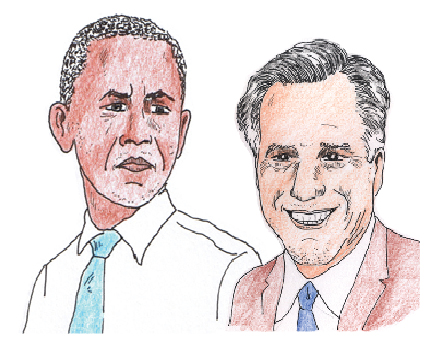
So what can we expect in the next four years? More of the last four, I fear. Whoever wins will either face a hostile Congress, controlled by the other party, or a razor-thin majority that will prove to be powerless and ineffective. Or a mix. It’ll be a wash in terms of accomplishment. But it will continue to give us something to talk about. More red meat.
A while back, I spent some time browsing the social media, to see what Republicans and Democrats were saying about each other on facebook. In the 15 minutes I devoted to this task, these are some of the epithets and insults that were being hurled back and forth, via the comments, through the fiery rhetorical ethereal glow of cyberspace. They called each other…
“…thugs, trolls, outlaws, liars, criminals, shills, thieves, sheeple, mindless, pukes, crazy, RePUKElicans, decayed, DEMONcrats, racists, dumbasses, dicks, Socialists, Fascists, Commies, brain-dead, stupid, Obamatons, spoon-fed morons, haters, ignorant, ignnoramuses, un-American, SOBs, a joke, loon, delusional, deceitful, BS, mean-spirited, forked-tongue, Obumma, jack ass, asshole, lazy pieces of crap, and big fat turds.”
After a while I gave up. If we could somehow quantitatively measure the level of vitriol in political campaigns a century ago, we’d probably be shocked to see that it wasn’t much different then than now. But today, we can share our venom more effectively and, of course, instantly; back then, the reach of our meanness went no further than the barber shop and the local café.
Here’s what I don’t get…with the country split so evenly, why do both sides take such drastic measures to alienate each other? The idea is to WIN OVER some of those members of the opposition, to encourage them to open their hearts and minds to a different way of thinking. And to convince them, with intelligence and reason and logic and compassion why “our” ideas can offer all of us a brighter future.
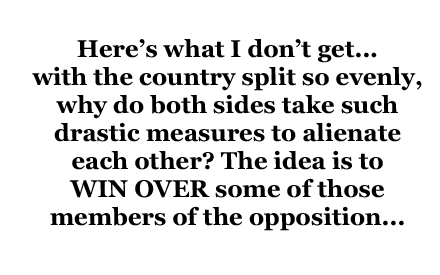
From what I might reluctantly call “my”side of the debate, why would we want to denigrate our political opponents in such a personal way? Recently I read this on facebook from a dyed-in-the-wool Democrat: “Republicans have no heart, no soul, they’re in it for themselves, they’re rich and they’re evil. And if they’re not rich and are still Republicans, then they’re stupid.”
Obviously, only a fraction of Republicans are rich. Do you think we can convince the rest of them to change sides by calling them stupid? I don’t get it.
Anyway, I hope to be away from televisions and computers and the internet on election night. But I’ll probably be like the witness to a car crash who just can’t help but gawk at the wreckage and tune in like everybody else. Whatever happens on November 6, I don’t expect to feel the earth move under my feet, but our world does seem to be shifting dangerously toward a tipping point that few are willing to acknowledge, and even fewer are willing to confront.
SPEAKING OF ELECTIONS…HATE BAIN CAPITAL? NOW
TAKE A LOOK IN THE MIRROR…
It’s not often I find myself in agreement with my favorite venture capitalist/multi-billionaire/leveraged buyout king/faux-environmentalist, my adversary of first resort David Bonderman. But…when the glove fits, it’s only fair to explain the reasons..
Bonderman, for those of you who suffer through my endless (but ALWAYS truthful and accurate) accounts of his 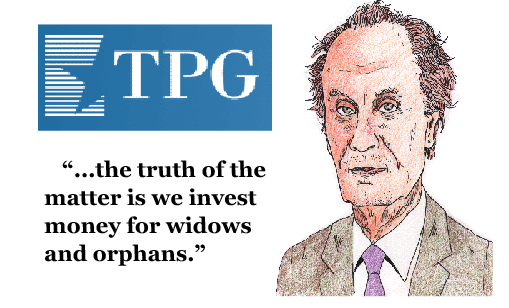 contradictory roles as benefactor and conservationist to green groups like the Grand Canyon Trust, the Wilderness Society and the Southern Utah Wilderness Alliance, you know that my affection for him and his massive venture capital company TPG Capital is, at best, restrained.
contradictory roles as benefactor and conservationist to green groups like the Grand Canyon Trust, the Wilderness Society and the Southern Utah Wilderness Alliance, you know that my affection for him and his massive venture capital company TPG Capital is, at best, restrained.
But it’s important to understand just what it is that TPG Capital and its founding partner do to make all that money and for whom that wad of cash is intended. Now that Mitt Romney is the Republican presidential nominee, a comparison between TPG and Romney’s brainchild, Bain Capital is worth examining.
Last winter, when private equity first made headlines during the Republican primary season, it was Romney’s opponents who first brought the sins of leveraged buyouts to light. The media played one story after another that depicted the brutal and cold-hearted way these “barbarians at the gate,” as one author described them, busted up companies, shut down factories and threw workers into soup lines. A story from Reuters, by Greg Roumeliotis, asked the buyout kings for an opinion. Bonderman had one:
“Private equity’s leaders have confidence in the intellectual arguments supporting their trade but express frustration at the political debate over Mitt Romney’s tenure at Bain Capital LLC.”
With a top private equity veteran tipped to win the Republican nomination for U.S. President, the sector has had to defend its practices over claims that it saddles companies with debt only to strip them of assets and shed jobs. “I think he has done a particularly incompetent job of defending himself frankly, and he’s got lost in his ‘I created jobs’ thing when the truth of the matter is we invest money for widows and orphans,” David Bonderman, founding partner of TPG Capital, told the SuperInvestor U.S. conference in San Francisco.”
“Widows and orphans.” In his own mocking way, Bonderman still, in a fashion, managed to tell the truth.
You see, these venture capitalists survive and flourish because of us. Mr. Romney was right recently when he explained that firms like Bain look for “customers” to give them our money to invest. And we do. We give them untold BILLIONS of dollars. Who are these investors? Are you a teacher? Are you a cop? A librarian? Do you work for a municipal sanitation company? Are you a public service employee? Do you belong to a union? Because if you do, you are complicit in whatever private equity firm is investing your money.
I recently found this from the Wall Street Journal: “A cursory review of one of Bain’s many funds, Bain Capital Fund VIII, a vintage 2004, $5.25 billion private-equity fund, finds limited-partner investors like the Teacher Retirement System of Texas, State Teachers Retirement System of Ohio, Iowa Public Employees’ Retirement System and University of Michigan Endowment. As Newark, N.J., Mayor Cory Booker noted (before his YouTube hostage video disavowing his remarks), state of New Jersey pension funds invest in firms similar to Bain Capital.”
And according to The Fiscal Times: “As of fall 2011, about $220 billion in public employee pension funds were invested in private equity firms—about 11 percent of their assets, up $50 billion over 2010, according to Wilshire Trust Universe Comparison Service. Also, as of fall 2011, private sector unions including the Service Employees International Union (SEIU) and the Western Conference of Teamsters Pension Trusts had a collective $4.6 billion in defined benefit funds invested in private equity, according to data from Pensions & Investments.”
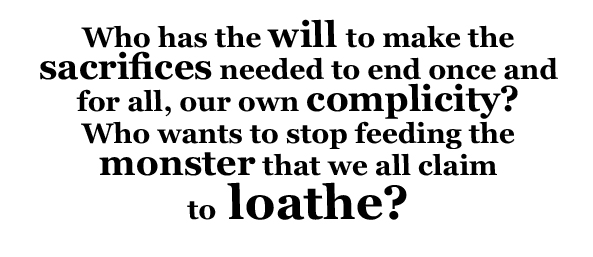
So when Bain Capital shuts down factories and puts people out of work or liquidates companies altogether and sells their assets, they are minimizing losses to protect investors.Now don’t be fooled—Romney and his ilk are rewarded mightily for their efforts. More than any of us can even fathom. But the truth is, as long as investors see their retirement and pension funds grow, firms like Bain and TPG Capital and others like them will survive and grow as well. Most workers who are invested in these kinds of retirement and pension funds rarely ask where the money comes from. As this kind of information becomes more available to the public, I wonder how many of them will want to know. It’s a hard truth to accept that these generous benefits come to you on the broken backs of others, but that is exactly what’s happening.
The same is true of many publicly traded stocks in all kinds of companies, including energy companies. The corporations are accountable to their shareholders. But who are the shareholders? Are they predominantly the ultra-wealthy we’d like to believe they are?
A few years ago, economist Robert J. Shapiro tried to find out. Shapiro served in the Clinton administration as undersecretary of commerce for economic affairs and was a key economic adviser to Al Gore and John Kerry in their presidential campaigns. He is also a co-founder of the Progressive Policy Institute, a “think tank” affiliated with the Democratic Leadership Council.
His findings are interesting. Shapiro discovered the following:
* Almost 43 percent of oil and natural gas company shares are owned by mutual funds and asset management companies that have mutual funds. Mutual funds manage accounts for 55 million U.S. households with a median income of $68,700.
* Twenty seven percent of shares are owned by other institutional investors like pension funds. In 2004, more than 2,600 pension funds run by federal, state and local governments held almost $64 billion in shares of U.S. oil and natural gas companies. These funds represent the major retirement security for the nation’s current and retired soldiers, teachers, and police and fire personnel at every level of government.
* Forty five million U.S. households have IRA and other personal retirement accounts, with an average account value of just over $22,000.This study was made before the big stock market declines of 2009 and I’m sure those numbers went down as well. But it reinforces the idea that many of us are silent partners to Big Oil, not its adversary, and all our protestations and placards do little but reinforce our own hypocrisy. Whether we knew it or not, many of us have a vested interest in oil company profits, while we simultaneously curse them for their excesses.
(And just a short sidebar: Remember 2010 and the BP Gulf of Mexico oil spill? A disaster of unprecedented proportions and we all called for the demise of BP. Yet, as BP stocks plummeted, guess who was in panic mode? Average UK citizens were, as they watched their retirement income collapse. Same story, different country.)
It’s important to note that many millions of Americans don’t have ANY kind of retirement plan or pension plan or IRA. They are struggling just to stay afloat from day to day and lack the luxury of worrying about the future. BUT when or if those millions are finally able to put some of their income away, and that of course is what they hope and dream for, these are the kinds of investment options they’ll be offered. In other words, the only people who can avoid the hypocrite label are the ones too poor to save for their retirement.What’s the bottom line? It’s a dilemma, isn’t it? We want to be ruled by our consciences but we also want the security of a comfortable pension. We want justice for the mega-rich as long as it doesn’t affect our wallets. If you’re a teacher or a cop or you work for a state or local government, or if you belong to a union, ask your representative for details about your pension and retirement funds. Ask about the stocks in your IRA mutual fund.. Find out WHO is doing WHAT with your money. Then decide if your conscience moves you to do something about it.
Ultimately, we have the power to stop this Greed Factor in American Culture that we all find so appalling. But who is willing to admit that we are partially to blame? Who has the will to make the sacrifices needed to end once and for all, our own complicity? Who wants to stop feeding the monster that we all claim to loathe?
The Stiles Job Plan: “Do as the French Do…”
The economy remains the core issue of the presidential campaign and will remain an issue long after November 6. Unemployment in the United States stays frozen above 8%; when we factor all those million of Americans who have stopped looking for work, the rate is much higher. But where will the jobs come from? What sector offers the most promise?
A year ago, my new bride and I spent our honeymoon in France and in addition to it being the greatest three weeks of my life, I may have stumbled upon an answer to our unemployment crisis.
Not long after our arrival, we were wandering the streets of Paris and I needed to use the facilities. We were near a train station and we ducked inside to find a toilet. I had never been to Europe but my wife had and she advised me, “Be sure you have at least a half Euro for the attendant.”
“What? An attendant?” I asked. “What do you mean?”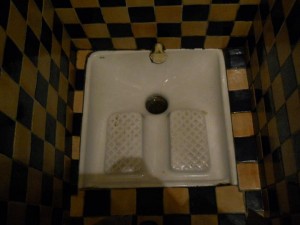
“Well, “ Tonya explained, “In France, all public restrooms have attendants. And you have to pay them.”
“But I don’t need an attendant, I just need to pee.” I complained.
“You may not need an attendant, but this is France and you need to pay her a half Euro.”
Sure enough, at the entrance to both rest rooms, a woman sat behind a desk and collected coins. While most public rest rooms in America are cleaned once or twice a day, in France, keeping the toilets tidy is a full-time ongoing procedure. It is an event that never ends. The attendant is on duty, I suppose night and day, to check the status of the toilet paper in each stall and to assure the general cleanliness of the place. Having an attendant on duty, 24/7, cuts down on the amount of strange behavior and bizarre vandalism that often sullies unattended toilets in America, which means there’s even less for the attendant to do. Which is a good thing for everyone but those who like to scrub toilets.
“It seems like a waste of time, to me,” I complained after my first experience.
“Maybe so, “ Tonya said, “But it beats being unemployed.”
Very true, I agreed. And I wondered how it might apply to public toilets in America. I imagined rest room attendants standing by the doors of public buildings—courthouses, and city halls, libraries, government office buildings, sports arenas, airport terminals, malls and shopping centers, hospitals..the mind boggles at the possibilities.
They could even expand the concept to Port-a-Potties. Imagine all those oil field workers out there on their rigs, miles from anywhere. Wherever there are people there are toilets and it’s not hard to envision the familiar clusters of aqua-marine port-o-lets lined up along a fence near the drill site. And right there by the plastic outhouses stands the port-o-let attendant, handing out red work rags and collecting his/her fee for services rendered.
And the national parks! Imagine you’re out at the Devils Garden at Arches and you’re about to take a long hike to Double O Arch. You stop by the vault toilet and there’s a uniformed “ranger attendant” to open the door and collect the fifty cents. I’d bet several hundred people a day use that toilet alone. Imagine the revenue one toilet could generate.
The possibilities are endless…the President could establish a National Youth Attendant Job Corps, to put young people to work. To create a greater cultural diversity, urban toilet corps kids could be assigned attendant jobs in rural areas, and vice versa. Toilets often are a reflection of the society they serve. Imagine the possibilities for cross-cultural communication and the sharing of knowledge and ideas. The toilet attendant era could create a global renaissance of untold opportunities. Indeed, this could be so much more than a long term solution to our unemployment dilemma. No matter how thriftily we live our lives, all of us need to use the toilet. Demand for a toilet will never dwindle.
There are, however, risks. Whether Americans will rebel at the cost is uncertain. Fifty cents isn’t much to shell out but we are an independent and contrarian breed. The idea of needing someone to hold the toilet stall door for us might cause some consternation, especially among men. It could lead to a rebellion of sorts, with men seeking out the next available tree, power pole or dark alley in untold numbers.
But the risks are worth the gamble, I believe. As Robert Kennedy once said, while sitting on the toilet at Hickory Hill, “Some men see things as they are and say why. I dream things that never were and say, why not.” Bobby then handed the attendant a dollar and returned to the pool party.


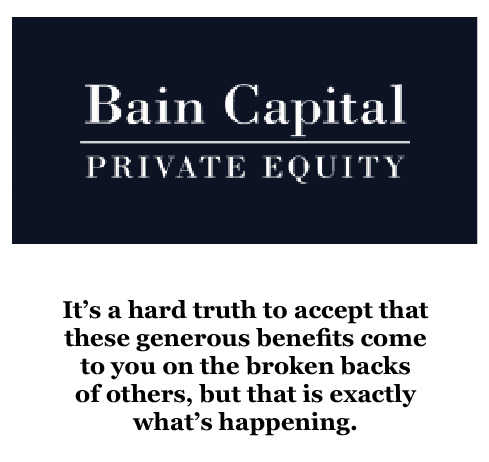
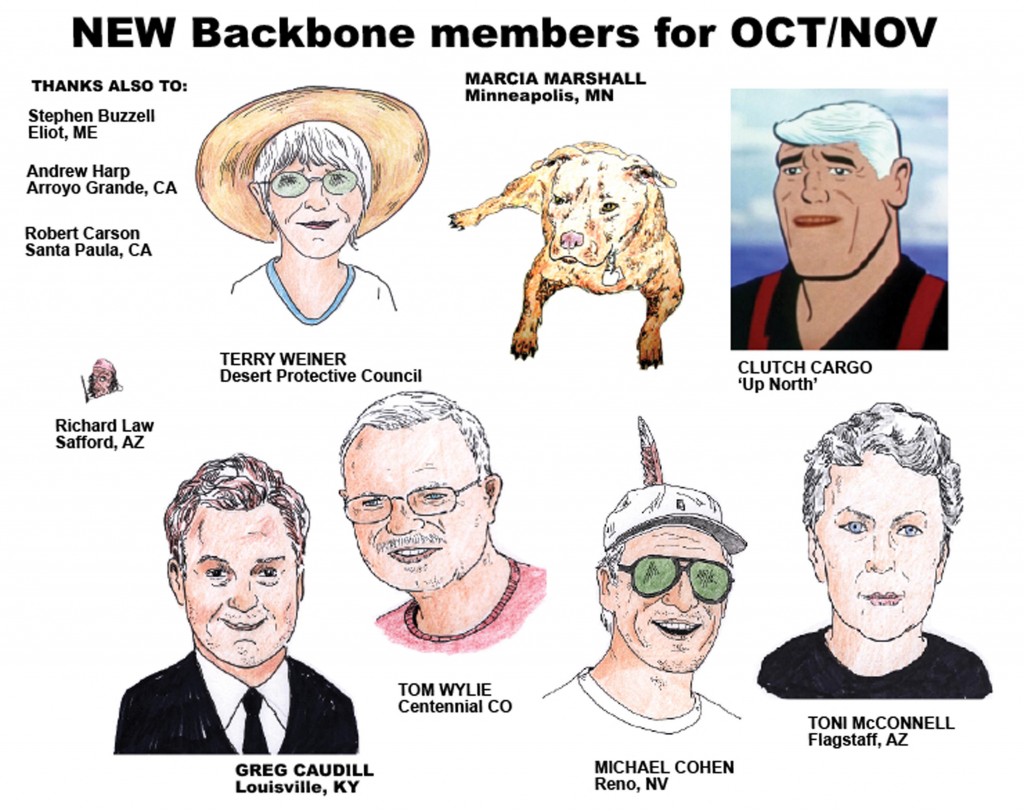
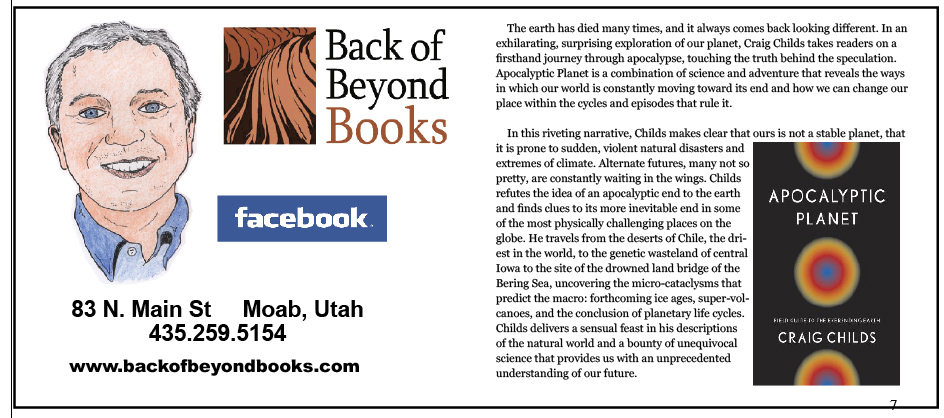

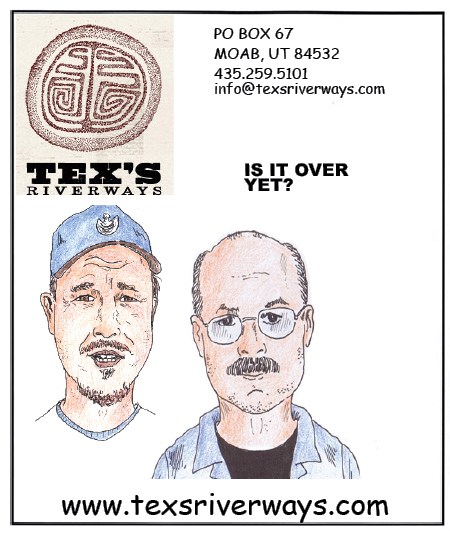
My sister-in-law lived in France for many years and when I was getting to know her we talked at length about her experience of the French health care system. I left those conversations with a an impression that overall French culture is about the quality of life rather than a collective stampede for profitability.
You know how it is with a collective stampede: you’re unlikely to see how weird your behavior is.
Or we could change the definition of money……
http://www.npr.org/2012/09/22/161380937/time-banks-help-spaniards-weather-financial-crisis?sc=tw
Or we could forget saving the economy and pee in the bush.